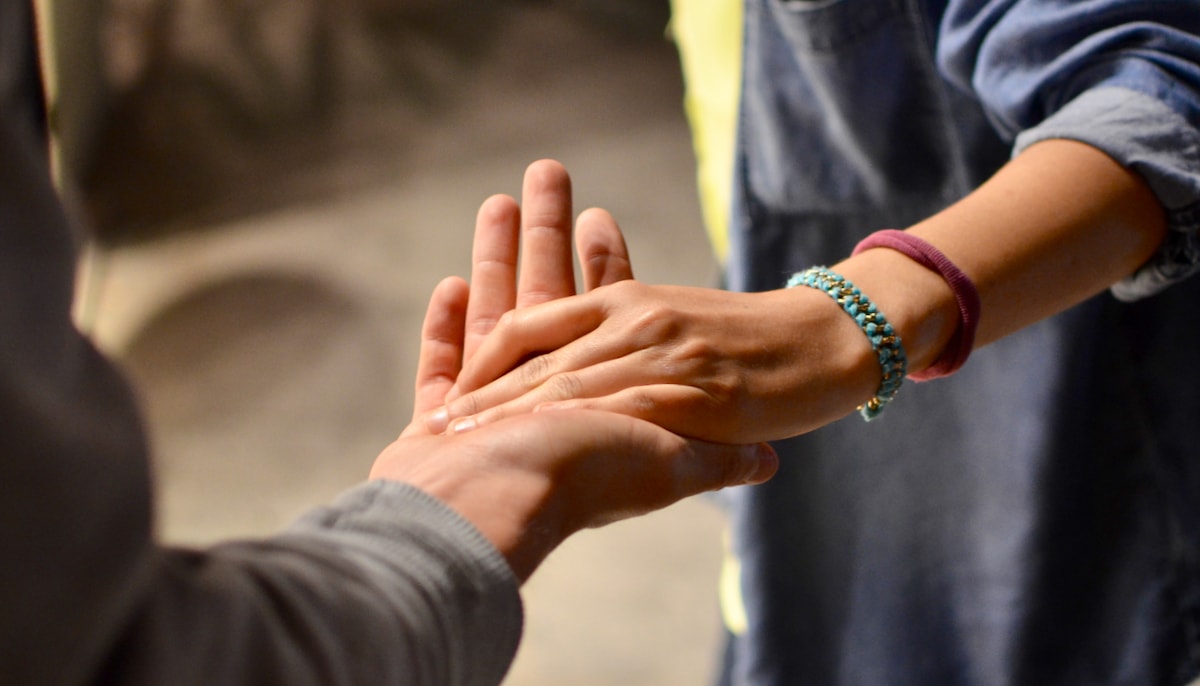I have recently realized that I’ve lived most of my life without knowing the whole definition of kindness. I figured it had something to do with being friendly—perhaps with a pinch of generosity thrown in for good measure. When I thought about what kindness looked like, I envisioned the classic example of swooping in to help someone carry a bursting bag of groceries to their car.
But what would be left if I peeled kindness away from action? His Holiness the Dalai Lama famously said, “My religion is simple. My religion is kindness.” If kindness is so radical that it can define someone’s entire spirituality, then it has to be more than just a good deed.
Recently, my partner went through a bout of severe anxiety. She was battling demons I couldn’t see. Being a “fixer,” I took it upon myself to be the rock in our household of two. I wanted to be someone she could count on continuously, without hesitation and without limits.
My response to her suffering was: I’ll be your hero.
What I didn’t realize was how I was setting up a dynamic where she looked to me for healing and I felt like I was never enough. I didn’t realize I was being unkind to myself in trying to be her “everything.” Soon, I found myself exhausted and neck-deep in my own anxiety. I was depleted, so I began distancing myself emotionally, agreeing to anything just to avoid confrontation.
There was no lightning-bolt moment, but I slowly realized that the support I was offering my partner should have included kindness toward myself, for both of our sakes. Kindness would have included acknowledging my limits, maintaining my sense of self, and addressing face on what was uncomfortable for me. If I had been kind to myself while offering her support, I would have had the energy to be more fully present at appropriate times, instead of constantly being there physically but not having the stores to be there emotionally.
When I understood this, I held my partner’s hand and we looked at the situation together. We then promised to proceed with a sincere willingness to protect and not cause harm to ourselves and each other. This was the definition of kindness I had been searching for.
In this issue of Lion’s Roar, you will find an entire section devoted to kindness—the type of advice I know I needed to hear. Starting with ourselves, Pema Khandro says we need to be kind to our body and mind on a basic, everyday level. “When hungry—eat; when tired—sleep,” she writes, quoting an old Zen teaching.
Buddhism teaches that when we are aware of our own suffering we can relate to the suffering of other beings. In the same vein, the kindness we offer ourselves can spill over into the kindness we offer others, until we can expand our reach to include all sentient beings. As Melissa Myozen Blacker says, once we recognize that we’re all interconnected and that we’re all struggling with something, we can engage in a never-ending exploration of how to treat everyone we meet with respect and care.
This holiday season, I hope we have the strength and courage to be kind to both ourselves and each other. Whether we’re helping someone carry groceries to their car, holding someone’s hand as they battle demons we cannot see, or taking a moment for ourselves as we care for another, it helps to remember that we’re all on this spinning globe together.

